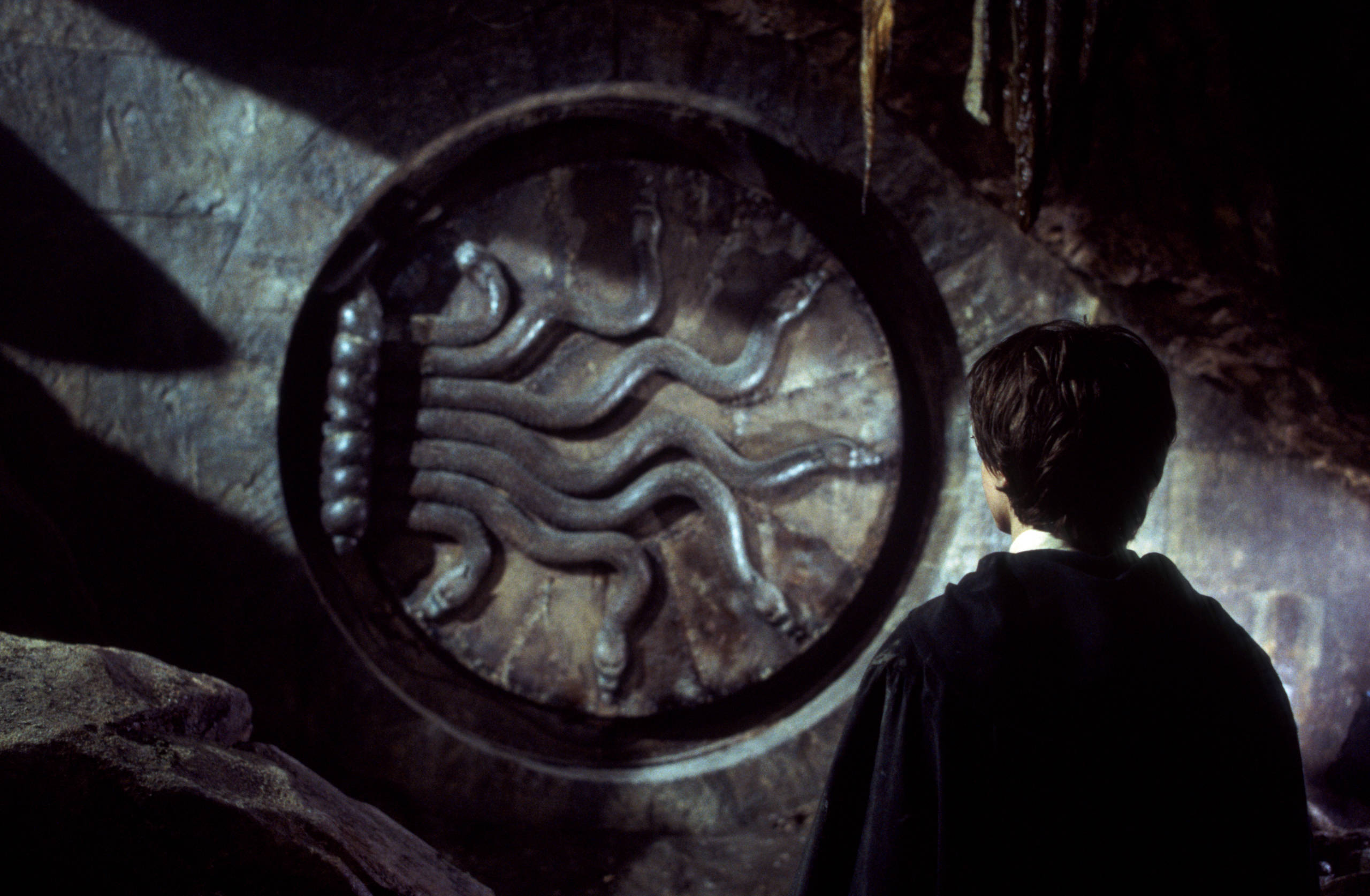
HARRY POTTER AND THE CHAMBER OF SECRETS
Another year at the prestigious Hogwarts School of Witchcraft and Wizardry brings another set of great dangers that places everyone in jeopardy. And for a young Harry Potter returning for his second year of school, this only means that many more rules are going to be broken. In succeeding against Voldemort’s attempts to restore himself to his former glory with the sorcerer’s stone, Harry has proven that he is willing to do anything to do what is right. Rather than looking at rebellion as a barrier to him preventing the spread of evil, he uses it as a tool to ensure that others’ safety is protected at all costs.
It is apparent in Harry’s adventures during his first year at Hogwarts that he breaks the rules to do what he thinks is morally just. Even though he is often at the greatest risk when breaking the rules. But, with all of the many, many times that Harry breaks the rules, it may cause one to wonder: is it really necessary? The level of danger that Harry and the school faces in the Chamber of Secrets definitely elevated compared to his first year. But with the multiple opportunities that Harry has to follow the rules and ask for help, does he need to break as many rules as he does? Should he reconsider his decisions and act under the rules established by the wizarding world?
No, I daresay, he absolutely should not. Yes, he tends to make more emotional decisions and rarely thinks his plans through rationally. But! In the circumstances that the school places him in, where danger lurks around every corner and there are limited resources that students can turn to so they can learn more about them, what choice does Harry have other than to break the rules? When an established authority – Hogwarts – does not provide you with the tools necessary to uphold your morals (save the school), the only option that you are left with is to break the rules. And that is exactly what Harry does.
Harry, Ron, and Hermione set out to find out more about the “true heir” who is responsible for petrifying Muggle-born students (Rowling 159). Of course, this includes breaking several rules along the way. Their goal is to create a potion that would allow themselves to transform into Slytherin students, so they can get information from Malfoy. In order to do that, they sneak their way into the library’s Restricted Section, steal ingredients from Professor Snape’s office, and force their way into the Slytherin common room to get to Malfoy. All of these actions are against Hogwarts school rules, but the information they are able to glean from Malfoy is a significant step that leads to their eventual success. Without knowing your enemy, you are unprepared in the fight against them. By eliminating Malfoy from their list of suspects, Harry, Hermione, and Ron are one step closer to ending the terrible incidences occurring in their school.
While it may seem foolish for the three wizards to constantly go out on their own, it is not like they really have many people to turn to. Besides the fact that most of the professors would warn them away from getting involved, some of them are also not to be trusted. Their very own Defense Against the Dark Arts professor, Gilderoy Lockhart, tries to wipe Harry and Ron’s memories with a Memory Charm when in the Chamber of Secrets. This is because he has revealed that he claims the credit of others’ heroic deeds and he writes about in his novels (Rowling 298). When a gigantic, lethal snake is on the loose in the chamber and Voldemort is trying to kill Harry, all that the professor can think about is stealing credit for an action he didn’t do. Quite the disappointment.
In defeating Voldemort once again, Harry proves the necessity of breaking the rules. By following them, he would not have been able to discover who the true perpetrator of these crimes were, and Voldemort may have succeeded in using his notebook to return to life. However, his initiative saved the wizarding world once again. His actions also prove that, because of rules being created to inhibit others from being able to act to affect change, it is at times necessary to break them in order to do what is right.
2 responses to “Harry Potter: Rebellion as an essential tool to upholding morals”
Hey Jada!
I really enjoyed reading your article. I like how you first pointed out that Harry has big shoes to fill due to his status as the Chosen One. I like the angle that you took with this article about breaking the rules. I find that this is one of the most overlooked things within Harry Potter because it becomes second nature to the trio and the audience that it goes unnoticed for the most part. I like the examples that you pulled for when Harry broke the rules for the greater good. Overall, great article! However, I would maybe try and add your thesis to the first or second paragraph – or maybe combine the first three. It was a bit difficult to find your thesis, but then there it was in the third paragraph. This will help the article be a bit easier to read
I enjoyed how this was a continuation of the first article. It’s a very fluid continuation and a good read. I liked the examples that you picked from the polyjuice potion and why they made it to Lockhart’s attempt to wipe Harry’s and Ron’s memory.